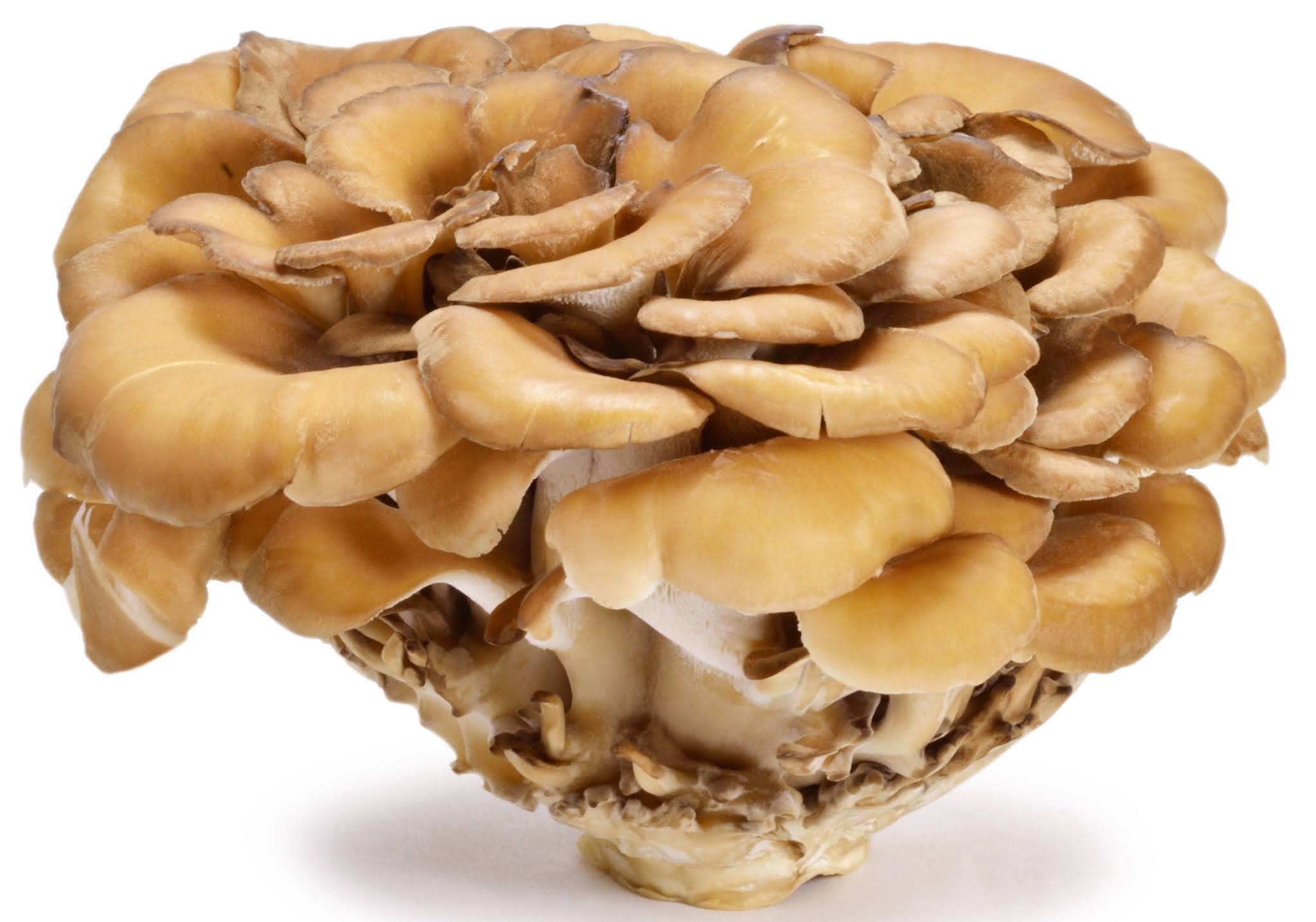Introduction to Maitake Mushroom
Maitake mushroom is a type of edible fungus that grows in clusters at the base of trees, particularly oak trees. It is native to Japan, China, and North America and has been used for centuries in traditional medicine for its potential health-promoting properties. In addition to its medicinal uses, maitake mushrooms are prized for their culinary value and are commonly used in soups, stir-fries, and other dishes.
Nutritional Profile of Maitake Mushroom
Maitake mushrooms are low in calories but rich in essential nutrients and bioactive compounds. Here’s a brief overview of the nutritional profile of maitake mushrooms per 100 grams
- Calories Approximately 31 calories
- Protein Around 2.7 grams
- Carbohydrates About 7 grams
- Fat Minimal, usually less than 0.5 grams
- Fiber Approximately 2.3 grams
- Vitamins and Minerals Contains small amounts of vitamin B2 (riboflavin), vitamin B3 (niacin), vitamin B5 (pantothenic acid), copper, potassium, and selenium.
Health Benefits of Maitake Mushroom
Maitake mushrooms are renowned for their potential health benefits, which may include
Immune Support
Maitake mushrooms contain beta-glucans, polysaccharides that may help stimulate the immune system and enhance its response to infections and diseases.
Antioxidant Properties
The antioxidants found in maitake mushrooms, such as vitamin C and selenium, can help neutralize harmful free radicals in the body and reduce oxidative stress.
Blood Sugar Regulation
Some studies suggest that maitake mushrooms may help regulate blood sugar levels and improve insulin sensitivity, making them potentially beneficial for individuals with diabetes or metabolic syndrome.
Anti-inflammatory Effects
Maitake mushrooms contain compounds that exhibit anti-inflammatory properties, which may help reduce inflammation and alleviate symptoms of inflammatory conditions like arthritis.
Weight Management
Due to their low calorie and fat content, maitake mushrooms can be a nutritious addition to weight loss or weight management diets, providing satiety without adding excess calories.
Risks and Side Effects
While maitake mushrooms are generally considered safe for most people when consumed in moderate amounts, there are some risks and side effects to be aware of:
Allergic Reactions
Individuals with mushroom allergies may experience allergic reactions, such as itching, swelling, or difficulty breathing, after consuming maitake mushrooms.
Digestive Issues
Some people may experience digestive discomfort, such as bloating, gas, or diarrhea, after consuming maitake mushrooms, particularly if they are sensitive to dietary fiber or certain compounds in mushrooms.
Interactions with Medications
Maitake mushrooms may interact with certain medications, including blood thinners and medications for diabetes or high blood pressure. It’s essential to consult with a healthcare provider before incorporating maitake mushrooms into your diet if you’re taking prescription medications.
How to Incorporate Maitake Mushroom into Your Diet
Maitake mushrooms can be enjoyed in various ways and incorporated into a wide range of dishes. Here are some ideas for including maitake mushrooms in your diet:
Stir-Fries
Add sliced maitake mushrooms to vegetable stir-fries for added flavor and texture.
Soups and Stews
Use maitake mushrooms as a nutritious ingredient in soups, stews, or broths.
Grilled or Roasted
Grill or roast whole maitake mushroom clusters with olive oil, garlic, and herbs for a delicious side dish or appetizer.
Sautéed
Sauté maitake mushrooms with onions, garlic, and your favorite seasonings as a savory topping for pasta, rice, or quinoa.
Stuffed
Fill maitake mushroom caps with a mixture of breadcrumbs, herbs, and cheese for a flavorful appetizer or vegetarian main course.
FAQs
Are maitake mushrooms the same as shiitake mushrooms?
No, maitake mushrooms (Grifola frondosa) and shiitake mushrooms (Lentinula edodes) are different species of mushrooms with distinct flavors, textures, and nutritional profiles. While both are prized for their culinary and medicinal properties, they are not the same.
Can maitake mushrooms be eaten raw?
While maitake mushrooms can be consumed raw, they are often cooked before eating to enhance their flavor and digestibility. Cooking also helps break down tough fibers and potentially harmful compounds found in raw mushrooms.
Are maitake mushrooms high in protein?
Maitake mushrooms are not a significant source of protein compared to animal products or legumes. However, they do provide a moderate amount of protein along with other essential nutrients.
Can maitake mushrooms help lower cholesterol levels?
Some studies suggest that maitake mushrooms may have cholesterol-lowering effects due to their beta-glucan content. However, more research is needed to confirm these potential benefits in humans.
Are dried maitake mushrooms as nutritious as fresh ones?
Dried maitake mushrooms retain most of their nutritional value, including vitamins, minerals, and antioxidants. However, the drying process may concentrate certain nutrients and flavors, making dried maitake mushrooms more potent in some cases.
Can maitake mushrooms be cultivated at home?
Yes, maitake mushrooms can be cultivated at home using mushroom growing kits or by inoculating hardwood logs with maitake mushroom spawn. However, growing maitake mushrooms at home requires specific environmental conditions and careful attention to detail.
Are there any contraindications for consuming maitake mushrooms?
Individuals with mushroom allergies, digestive disorders, or compromised immune systems should exercise caution when consuming maitake mushrooms and consult with a healthcare provider if necessary. Additionally, pregnant or breastfeeding women should consult with a healthcare provider before incorporating maitake mushrooms into their diet.
Conclusion
Maitake mushrooms are prized for their unique flavor, culinary versatility, and potential health benefits. Rich in essential nutrients, antioxidants, and bioactive compounds, maitake mushrooms offer numerous potential health benefits, including immune support, blood sugar regulation, and anti-inflammatory effects. While generally safe for most people when consumed in moderation, it’s essential to be mindful of potential risks and side effects, particularly for individuals with allergies or underlying health conditions. By incorporating maitake mushrooms into your diet in various delicious ways, you can enjoy their nutritional and medicinal properties as part of a balanced and flavorful eating plan.
- How To Achieve A Lifted Look With Nasolabial Fold Fillers In Kingston Upon Thames - May 23, 2025
- THC Drinks: A Healthier Alternative To Smoking Cannabis? - May 22, 2025
- Lip Flip Treatment Near Limpsfield, Surrey - May 21, 2025


